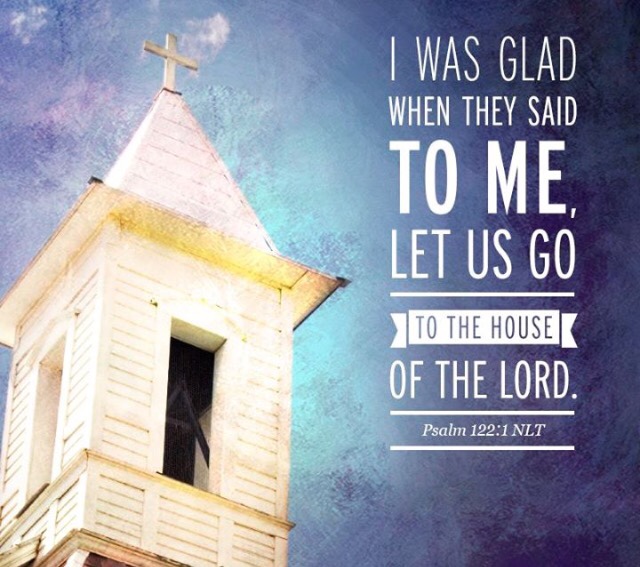 Article: 3 Reasons Why Every Christian Needs The Church by Nicolas Davis, lead pastor of Redemption Church (PCA) in San Diego, California. Nick has worked for White Horse Inn for several years, has contributed to Modern Reformation and other places, and is a writer for Core Christianity. (original source here)
Article: 3 Reasons Why Every Christian Needs The Church by Nicolas Davis, lead pastor of Redemption Church (PCA) in San Diego, California. Nick has worked for White Horse Inn for several years, has contributed to Modern Reformation and other places, and is a writer for Core Christianity. (original source here)
When you become a disciple of Jesus, you are not the only disciple in this world. There are others whom Jesus has also called, and we all belong to one another. Christianity is not a religion for those who would like to walk alone.
We may need to make an individual decision to believe the gospel, but once we do, it is no longer “I who live but Christ who lives in me” (Gal 3:20). Christ has a visible body, and he calls it his “church.” Christians were never meant to live apart from other Christians—we were made to be part of the same community.
Here are several reasons why every Christian needs the local church.
1. Every Christian needs spiritual care.
It’s common for people to attend a church regularly without officially belonging to that particular church. What this sort of church attendance fails to understand is that all sheep need a shepherd. Jesus is, of course, our ultimate Shepherd, but he leads his sheep through under-shepherds who are specially called to care for his people.
The biblical warrant for the spiritual care of every Christian comes from the following passage:
So I exhort the elders among you, as a fellow elder and a witness of the sufferings of Christ, as well as a partaker in the glory that is going to be revealed: shepherd the flock of God that is among you, exercising oversight, not under compulsion, but willingly, as God would have you; not for shameful gain, but eagerly; not domineering over those in your charge, but being examples to the flock. And when the chief Shepherd appears, you will receive the unfading crown of glory. Likewise, you who are younger, be subject to the elders. Clothe yourselves, all of you, with humility toward one another, for “God opposes the proud but gives grace to the humble.” (1 Pet. 5:1–5; emphasis mine)
It’s clear from passages like this that God desires every Christian to be under the spiritual care and authority of flesh and blood elders (see also Heb. 13:7). Elders are those whom God has called to shepherd his people, and they are to give an account of their spiritual care to Jesus—the true Shepherd—on the last day.
Additionally, Paul charged Timothy and Titus to “entrust” the apostolic teaching to “elders in every town” where there is a church (Acts 14:23; 2 Tim. 2:2; Titus 1:5). He expected each church to have people who were called and appointed to serve in every place that people gathered.
Who really wants to live life unprotected and alone, anyway? Unfortunately, this is what Christians are functionally doing when they forgo the ordinary care they would normally receive from a local church.
2. Every Christian needs accountability.
When I was in college, I had accountability partners with whom I could share my deepest struggles. As great as that fellowship was with other Christians, it only went so far. It wasn’t until the end of college that I experienced the benefits of belonging to not only an accountability buddy but also to a group of real men to whom I could look up and learn from in both doctrine and life experience.
When I had an accountability partner, I could only be held accountable to what I shared. Furthermore, if I did share something really “bad,” my friend could only tell me that it was wrong. He didn’t have any more authority than that. If we are members of a church, however, then the leaders of that local church will have the ability to hold me accountable to my profession of faith. If I am denying the gospel outwardly, I’m rebuked and corrected.
This is necessary for Christians, so that we don’t become hard-hearted or leave the faith altogether. In Matthew 18, Jesus describes the practice of church discipline. This may sound like a scary term, but it outlines the process a believer should take when another believer sins against him. If the sin cannot be resolved between the two Christians, then the last step is to “tell it to the church” (v. 17).
The only way Christians can faithfully obey Jesus in this life is if they are part of a broader body than their own Christian group: they need to actually belong to a Christian church.
3. Every Christian needs others.
When Jesus Christ died on the cross, he tore down the walls of hostility that existed between Jews and Gentiles (Eph. 2:13–16). The body of Christ has many members—it is multigenerational and multiethnic. It has always been this way.
In Hebrews 11, Paul describes how Rahab, the non-Israelite prostitute, was engrafted into the people of God by faith. It is also always going to be this way in the new heavens and new earth:
After this I looked, and behold, a great multitude that no one could number, from every nation, from all tribes and peoples and languages, standing before the throne and before the Lamb, clothed in white robes, with palm branches in their hands. (Rev. 7:9)
As sinful human beings, we tend to hang around people who are most like us. But God calls us to something much greater and grander than this when he knits us together as one body in the church. In this new community that God creates by his Word, we are forced to be around people whom we may not always like—but we are still called to love.
We are surrounded by older and younger Christians, people who are barely making it from paycheck to paycheck, those who are independently wealthy, and those who are racially or culturally very different from us. The gospel brings all of these differences together, and it shows forth the beauty of the entire creation that God is redeeming. God created variety, and he is redeeming variety.
In 1 Thessalonians 5:14–15, Paul wrote to encourage a mature church with these words: “And we urge you, brothers, admonish the idle, encourage the fainthearted, help the weak, be patient with them all. See that no one repays anyone evil for evil, but always seek to do good to one another and to everyone.” We really do need one another, and we are always better off when we’re together.







